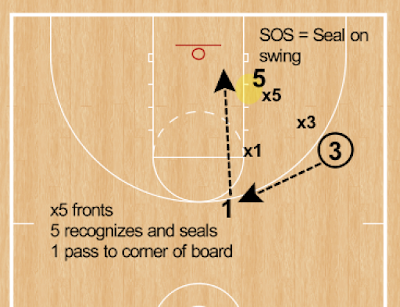Marshall Goldsmith wrote What Got You Here Won't Get You There. He points out that we establish our competence relatively early; progress then depends not on skill, intelligence, or personality, but on relationships.
He presents what I'll call self-defeating behaviors that often alienate or take power away from coworkers or subordinates. I discuss three and their coaching relevance.
1. Winning All the Time
2. Adding Too Much Value
3. Passing Judgment
Winning too much is a problem when we disempower those around us to maintain or enhance our status. But as coaches, we don't want sycophants and "Yes Men" surrounding us. We all know the story of GSW video coordinator Nick U'Ren, who suggested going small against Cleveland in the 2015 NBA Finals. Coach Steve Kerr substituted Andre Iguodala for Andrew Bogut and the rest is history. "We wanted to tell him in time to watch the film for himself and make the decision." Winning has to be about the team and not ourself. Leaders develop leaders, giving them an opportunity to grow and advance either within or outside the system.
Adding too much value refers to adding small contributions that may diminish an idea originator's ownership or participation. It's a subset of winning all the time and can devalue contributors. There's a difference between subtle and radical change. Ford Motor under the autocratic Henry Ford, said your car could be any color, as long as it was black. GM, led by Alfred P. Sloan, offered modifications to suit individual owners. As coaches, we need to see the big picture, but also have flexibility to make smaller changes in personnel, strategy, and motivation to enhance team performance.
Passing judgment can create resentment, disinterest, or rebellion. Players may see judgments as arbitrary, disrespectful, or unfair. We pass judgment on people and ideas. The author suggests that we try going a week without being judgmental and see how people respond to that. The flip side is that as coaches, we have to choose Peter over Paul, and make Sophie's Choice on personnel and strategy. Making decisions is the job description, the DNA of the task.
As coaches, if everyone likes us, then we're not doing the job. Conversely, if the 'wrong' people dislike us, then we have no job. That's cognitive dissonance for sure.
Bonus concepts:
1) Seal on swing to create the hockey assist "pass leading to assist.
Transition 3 on 2. Ballhandler and receivers must know best shooter and 'automatic' options.

